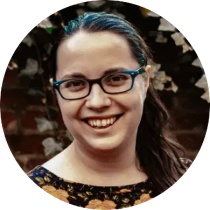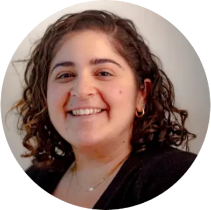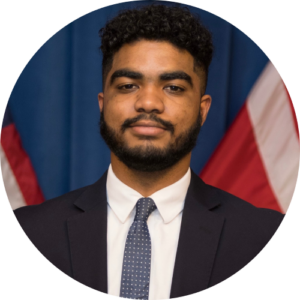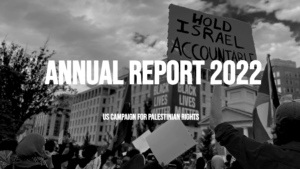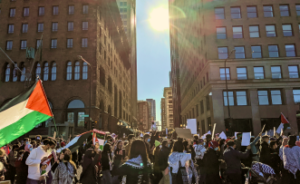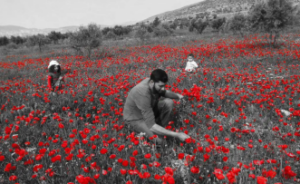Photo by Laura Albast
Our Mission
As part of a global movement for collective liberation, we work to end U.S. complicity in Israel's massive violence against the Palestinian people.
Our Vision
Freedom, justice, and equality for the Palestinian people in a world without racism and oppression.
OUR TEAM MEMBERS
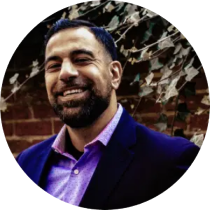
Executive Director
Ahmad

Communications Associate
Bria

Communications Director
Cat
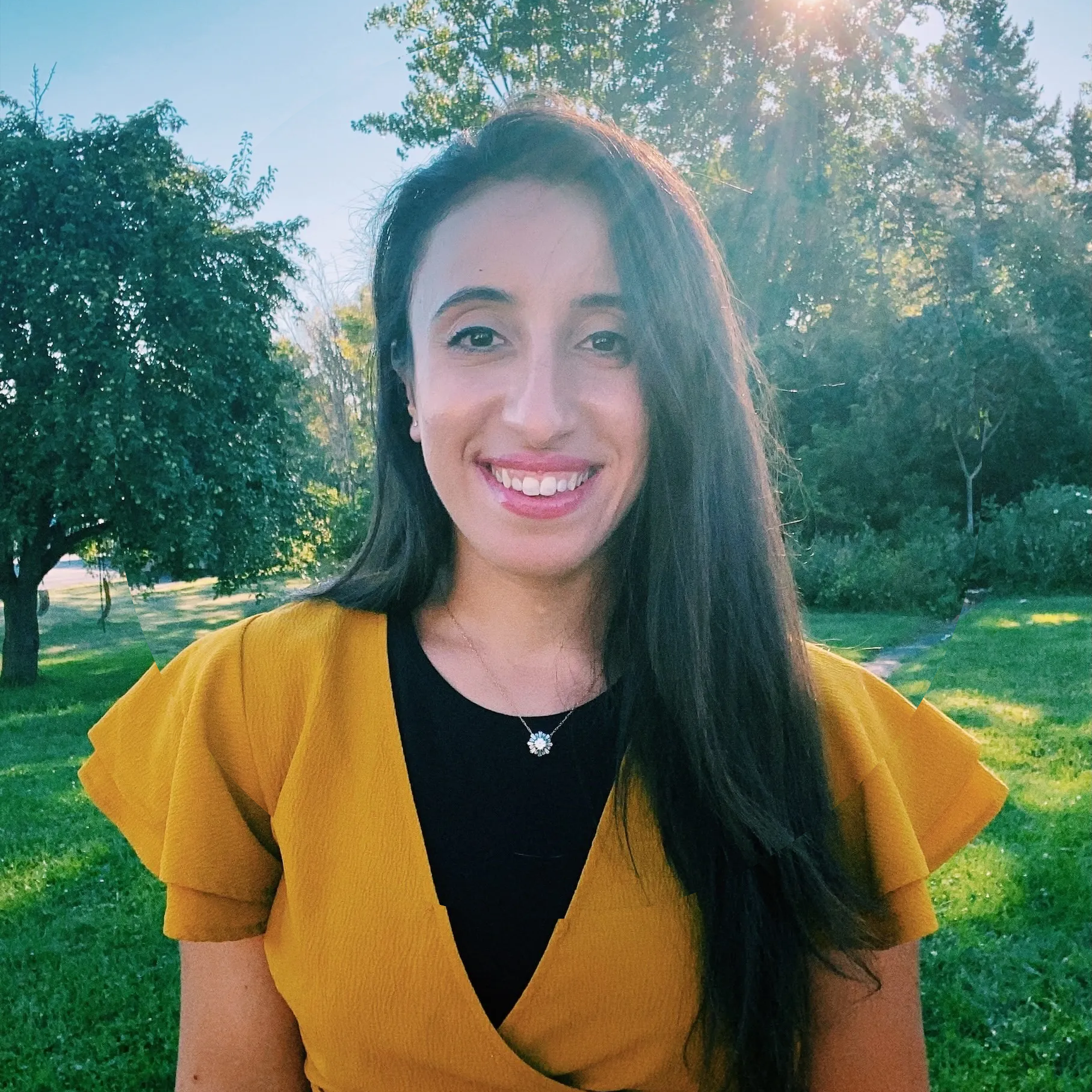
Organizing & Advocacy Director
Iman
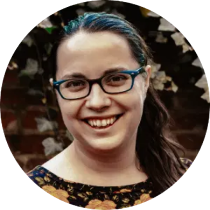
Manager of Congressional & Grassroots Advocacy
Leah
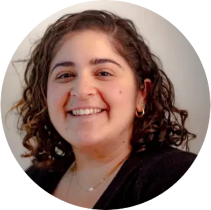
Development Manager
Maha

Development Director
Mike
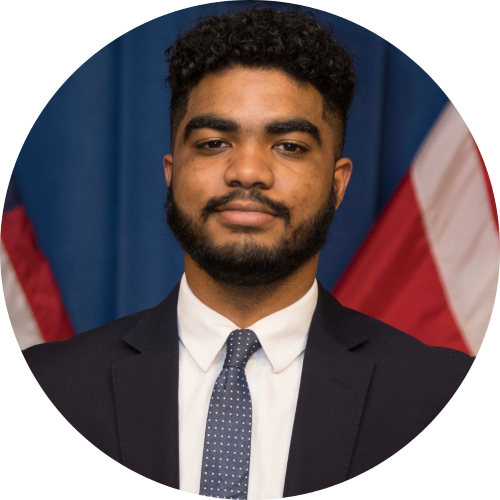
Manager of Policy & Advocacy Campaigns
Mohammed

National Field Organizer
Annual Reports
OUR VALUES
Solidarity
Our work is impelled by a call for international solidarity and action by the Palestinian people; their voices are centered in our work and the demands of Palestinian civil society guide our priorities. The principle of solidarity also guides our relationships with other struggles for justice.
COLLECTIVE LIBERATION
We undertake our work for freedom, justice, and equality for the Palestinian people with the understanding that all forms of oppression are interconnected and that none can be fought in isolation.
ACCOUNTABILITY
We are dedicated to our mission and fulfilling it in a manner that is transparent, fulfills our commitments to our partners, and is grounded in the lived experiences of Palestinian and other marginalized communities.
LEADERSHIP
We lead by example, embodying our values, amplifying the work of our partners, and cultivating the leadership of people at the margins in the U.S.-based solidarity movement, to make the change we believe is possible.
INTEGRITY
We maintain an unwavering commitment to fulfilling our mission in an ethical and principled manner. We stand up for what is right even—and especially—when it’s not easy.
USCPR Common Principles
All members of the network hold these principles in common:
- We support a just and lasting peace for Palestinians and Israelis based on human rights, international law, equality, and relevant UN resolutions.
- We oppose US military, diplomatic, financial, corporate, and all other forms of support for Israel’s occupation and apartheid policies toward Palestinians.
- We stand in solidarity with the Palestinian struggle to achieve freedom from Israeli military occupation, justice for refugees through the implementation of their right of return, full equality for Palestinian citizens of Israel, and the right to self-determination.
- We stand opposed to Islamophobia, antisemitism, all forms of racism, and any other expressions of bigotry directed at any person or group. We also reject the charge of antisemitism when it is used spuriously to silence legitimate criticism of Israel’s policies and practices.
USCPR Anti-Racism Principles
- Our network stands opposed to all forms of racism and any other expressions of bigotry directed at any person or group.
- We stand against Zionism as a political system that privileges the rights of Jews over the rights of others. We also reject the charge of antisemitism when it is used spuriously to silence legitimate criticism of Israel’s policies and practices.
- The network of activists and organizations works to end actions and transform oppressive structures that sustain injustice in Palestine/Israel, we must also ensure that our actions and the actions of those within our organization and network do not serve to support or perpetuate other racist or bigoted behaviors, practices, and structures.
FAQS
In 2019, we adapted to the shifting context of the U.S.-based Palestine solidarity movement and the overall U.S. progressive political scene. By transforming into a looser network formation, we embraced our identity as a political home for all who believe in Palestinian rights. As Palestinian rights become more embedded in the progressive agenda and are embraced by increasing numbers of people in the U.S., we want to remove the barrier for entry from the solidarity movement. As a network, anyone—students, individuals, activists, and organizations—who sees their values reflected in ours can find a political home in USCPR without being shut out for lack of a member group near them, or deterred by member group dues, especially if they are a newer or less-resourced group. And as a network, we have more flexibility to work with others who have the same ultimate goal of building a just world without oppression, even if their focus isn’t specifically on Palestinian rights.
USCPR will continue providing organizing and advocacy resources, as well as action alerts, as we’ve done for the past 20+ years. There will be plenty of opportunities to work together on campaigns and actions to further our collective goal of ending U.S. complicity in Israel’s oppression of the Palestinian people. As a network, we will have a less formal relationship with you and other groups. That means the label of “member groups” is going away, and financial contributions from groups, while still appreciated, will become optional, and you will not have to elect USCPR Steering Committee members. Your group will still be listed as a resource on our Connect with a Local Group map, so folks near you can find a place to plug in. Regional list-servs will also remain active.
Membership dues and contributions from groups have helped fuel the growth of our work in the movement for Palestinian rights for 19 years. In early years, donations from groups represented as much as 10% of our annual budget. We owe big thanks to the many groups who have shown their solidarity and made tangible impacts on our operations over the years. But at the same time, the notion of “dues” was a barrier to entry for some groups. The new network model allows us to continue to invite contributions from solidarity groups and individuals who wish to continue helping financially to support USCPR’s mission, while not necessitating it as “dues.”
If your group is interested in continuing to contribute to our work for freedom, justice, and equality, we welcome it!
Of course! USCPR national conferences have always been a space for groups and individuals to present about their Palestinian rights advocacy, leading workshops and networking sessions about campaigns, sharing best practices and organizing/mobilizing lessons learned. That won’t change. For every conference we host, we’ll still ask anyone interested to submit workshops.
USCPR either runs or is part of several list-servs/coordinating groups. Contact us ([email protected], (703) 312-6360) to find out if there’s already something set up for a campaign you are running. If so, we can plug you in! If something does not exist already but there are others we know are working on something similar, we can make connections.
Over the last 20+ years, we've seeded, built, and supported dozens of BDS campaigns across the country; hosted 16 national conferences where we convened the movement for Palestinian rights; provided countless resources, trainings, and workshops to activists and organizers from St. Louis to New York City; pounded the pavement on Capitol Hill to demand accountability from lawmakers; and taken to the streets for Days of Action where, shoulder to shoulder, we marched to demand an end to U.S. complicity in Israeli oppression. As a network, we will continue to do all of this work, and more.
Yes! Member groups helped build USCPR into what it is today and we want to continue to hear from you, support your efforts, and build towards freedom, justice, and equality together. Becoming a network is about opening our doors as a political home and making the movement for Palestinian rights more accessible to more groups and individuals. So, to ensure you keep getting the support you need:
- Make sure you are on our email list so you have the latest actions and ways to get involved
- Check out these resources on our website: uscpr.org/resources
- Contact us! We’re still here to support: [email protected] or (703) 312-6360
Yes! We’ve hosted more than a dozen national conferences since our founding in 2001. Conferences have evolved from a space where dozens of organizers representing member groups come together to decide on a set of campaigns to work on, to events where hundreds of people—students, activists, and academics—come together to share knowledge and skills, and showcase the growing power of those dedicated to Palestinian rights (watch panels from our 2018 conference!). We’re committed to continue providing such spaces, as well as other regional and campaign-based convenings, for activists, organizers, and supporters to learn and strategize.
Our amazing Steering Committees (all volunteers!) once managed the day-to-day operations of a small staff; in the past 5+ years, as our staff has grown to ten, and their role has evolved more into that of a traditional governing board.
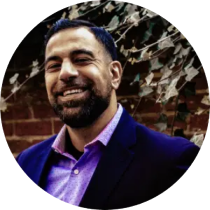 Ahmad is the Executive Director of the US Campaign for Palestinian Rights. Prior to joining USCPR, Ahmad co-founded the Florida-based Dream Defenders after the killing of Trayvon Martin, serving as Legal & Policy Director and COO during his time there. Ahmad went on to lead the National Network for Arab American Communities as the Executive Director from 2017 to 2019.
Ahmad is the Executive Director of the US Campaign for Palestinian Rights. Prior to joining USCPR, Ahmad co-founded the Florida-based Dream Defenders after the killing of Trayvon Martin, serving as Legal & Policy Director and COO during his time there. Ahmad went on to lead the National Network for Arab American Communities as the Executive Director from 2017 to 2019.

